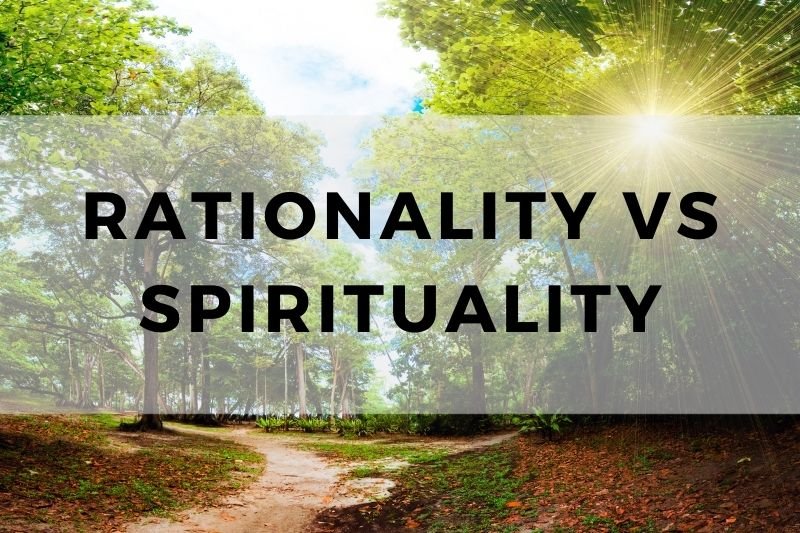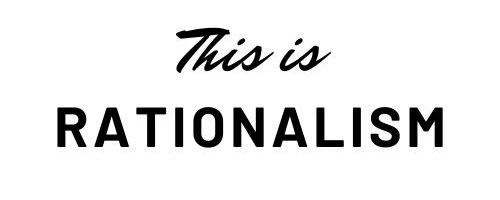
Rationality and spirituality often appear as opposing forces. One relies on logic, evidence, and reason, while the other emphasizes inner experience, intuition, and transcendence. Despite their differences, both play significant roles in shaping human thought.
The debate between rationality and spirituality raises important questions about how we understand the world and our place in it. Can the two coexist, or must they remain separate? In this article, we will explore the key differences between rationality and spirituality, and examine whether these two concepts can ever truly align.
Defining Rationality
Rationality is the ability to think logically and make decisions based on evidence. It values reason and seeks to understand the world through facts and data. Rational thinkers focus on what can be proven and tested. They question assumptions and rely on systematic thinking. Rationality is closely linked to science and the scientific method. It demands clarity and precision in thought. In this approach, emotions and beliefs are secondary to facts. Rationality guides us toward objective understanding, free from personal bias or subjective interpretation. It aims to find universal truths that can be applied consistently.
Defining Spirituality
Spirituality refers to the personal, individual pursuit of meaning, purpose, and connection with something beyond oneself. It often involves a search for a deeper understanding of life, the universe, or a higher power. Unlike religion, which may follow specific doctrines, spirituality is more fluid and personal. It can include practices such as meditation, prayer, or mindfulness. Spirituality encourages introspection and a sense of inner peace. It’s not necessarily tied to any particular belief system but focuses on individual experiences and self-growth. At its core, spirituality is about finding a sense of connection, fulfillment, and transcendence in life.
Rationality vs Spirituality: The Philosophical Divide
#1. Basis of Understanding
Rationality is grounded in logic and evidence. It seeks truth through reasoning and observation. Spirituality, on the other hand, is based on personal experience, intuition, and often faith. It looks beyond the physical world and embraces the unseen or the unknown. While rationality values what can be measured, spirituality focuses on what cannot always be proven.
#2. Nature of Exploration
Rational exploration focuses on external realities. It uses tools like experimentation and analysis to uncover facts. Spiritual exploration, however, is inward. It involves introspection, meditation, and connection with a higher power or consciousness. Rationality is about understanding the external world; spirituality is about understanding the self and the divine.
#3. Approach to Truth
Rationality pursues objective truth. It relies on facts and evidence that can be universally agreed upon. Spirituality, however, embraces subjective truths. It focuses on personal enlightenment and the meaning of life from an individual perspective. For rationality, truth is absolute; for spirituality, it is often personal and fluid.
#4. Relationship with Science
Rationality is directly aligned with science. It is driven by experimentation, observation, and the search for evidence. Spirituality, however, often operates outside the boundaries of scientific verification. It can involve belief in forces that science cannot measure or explain. While science relies on proof, spirituality relies on experience and faith.
#5. Role of Evidence
In rationality, evidence is key. Facts, data, and proof are necessary to make decisions or form conclusions. In spirituality, evidence is often more abstract. Spiritual truths are often felt or experienced rather than measured. Spirituality doesn’t always demand hard evidence; it seeks meaning beyond what can be seen or quantified.
#6. Core Focus
Rationality focuses on understanding the external world. It seeks clarity through logic and reason. Spirituality, however, centers on internal growth and connection. It’s concerned with personal development, inner peace, and enlightenment. While rationality explores the objective world, spirituality delves into subjective experiences.
#7. Attitude Toward Mystery
Rationality seeks to solve mysteries. It looks for explanations and clarity. The unknown is something to be understood through analysis and reasoning. Spirituality, on the other hand, embraces mystery. It sees the unknown as a part of life’s journey, something to be accepted rather than solved. Spirituality is comfortable with ambiguity and the unexplainable.
#8. Ethical Foundation
Rationality builds ethics based on reason and societal norms. It often follows a utilitarian approach—maximizing well-being and minimizing harm. Spirituality, however, bases ethics on divine commandments, personal conscience, or universal principles. Spiritual ethical foundations are often tied to personal beliefs, while rationality seeks a more universal standard.
#9. Perception of Reality
Rationality sees reality as something external and observable. It believes in a tangible, measurable world. Spirituality views reality as both internal and external, often beyond what the senses can perceive. It includes the unseen, the spiritual, and the emotional, suggesting a layered reality that isn’t limited to what can be seen or measured.
#10. Goal of Practice
The goal of rationality is knowledge and understanding. It aims to solve problems, answer questions, and create clarity. Spirituality, however, seeks personal transformation and connection with something greater. Its goal is often enlightenment, peace, or a deeper sense of purpose. Rationality focuses on mastery of the external world; spirituality seeks harmony within.
Rationality vs Spirituality: Can They Coexist?
Rationality and spirituality don’t have to be opposing forces. Many philosophies suggest that a balance between both is possible. Humanism, for example, advocates for using reason to improve human welfare while respecting individual spiritual beliefs. Existentialism also finds room for both rational thought and personal spiritual exploration, focusing on individual freedom and meaning.
One practical example is mindfulness. Mindfulness is often viewed as a spiritual practice, but it has been backed by scientific studies showing its mental and emotional benefits. Rational thinking can explain how mindfulness reduces stress and improves focus, while its spiritual aspect lies in cultivating self-awareness and inner peace.
Similarly, many scientists and thinkers integrate rationality and spirituality in their personal lives. Some acknowledge the limits of science and find spiritual practices help them explore life’s deeper questions. This integration shows that both can coexist, with each enriching the other in different ways.
Closing Thoughts
Rationality and spirituality offer distinct yet valuable perspectives on life. While rationality provides structure, logic, and clarity, spirituality offers depth, meaning, and personal growth. The divide between the two need not be absolute.
Many find that integrating both can lead to a richer understanding of the world and oneself. Striking a balance between reason and spirituality can enhance not only our knowledge but also our inner peace. Ultimately, both can coexist, complementing each other in the pursuit of a more complete human experience.
